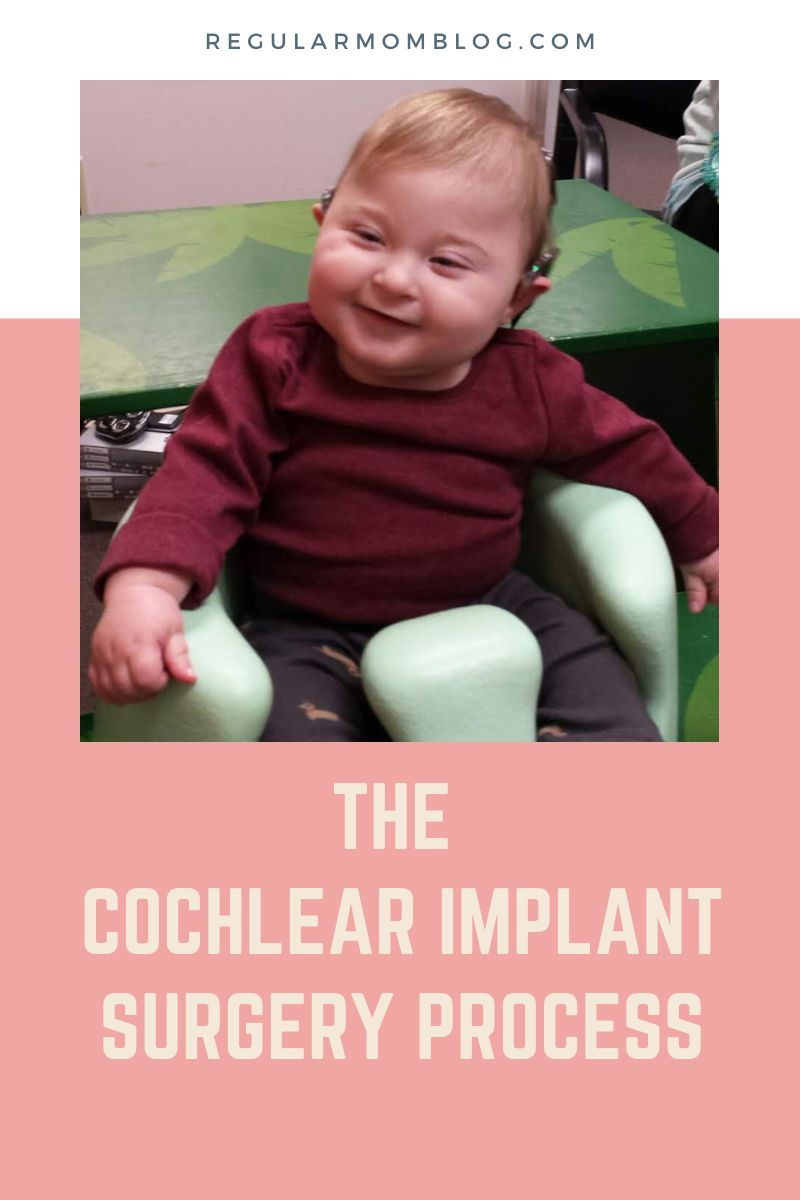school advocacy
It’s time to get clear on a language strategy for your child so that you can consistently practice language in your home and watch your child’s communication soar in less time!
Welcome!
Language Coach for Parents of kdis with hearing loss
I want to show you how to build better language skills at home so you can also parent with clarity and confidence!
Categories
hearing loss
sensory activities
sign language
1:1 Language Coaching
These are the kinds of resources that you will find on my blog!
Happy reading!
Cochlear Implant Surgery Process for Children with Hearing Loss
September 27, 2023
As a parent of a child with hearing loss, you may be considering a cochlear implant to improve your child’s hearing ability. While the thought of surgery for your child can be overwhelming, it’s important to understand the cochlear implant surgery process and what to expect.

I remember very well when we went through the cochlear implant surgery process for the first time with our child.
It felt like a really long process, and to be honest it was a bit of a blur.
There were so many decisions to make! And we were learning about cochlear implants for the first time and trying to quickly educate ourselves about hearing loss to help our child.
I wish that I had a quick, easy resource to that outlined the entire process in an easy-to-read way.
In this blog post, I’ve simplified the steps to the cochlear implant surgery process to help you prepare and feel more at ease.
Cochlear Implant Surgery Process
The cochlear implant surgery process follows a series of steps to get to the surgery day.
The process starts with an evaluation phase, where audiologists and doctors assess your child’s need for the surgery. This is done through a 2 hour hearing test with an audiologist and an MRI to make sure that your child is a candidate for surgery.
The next step is pre-surgery preparations, which include choosing the cochlear devices and a briefing about what to expect during and after the procedure.
The surgery itself is a delicate process, generally lasting 2-4 hours under general anesthesia. The child’s recovery period follows, which allows the surgical area to heal before the implant is activated and the child can start experiencing the benefits of the surgery.
Each step in the processensures the success of the cochlear implant once it is activated!
Consultation and Hearing Test
The first step in the cochlear implant surgery process is to schedule a hearing test with an pediatric audiologist.
During the testing, the audiologist will conduct a series of hearing tests and assessments to evaluate your child’s specific hearing needs and determine if they are a suitable candidate for cochlear implantation.
The test takes about 4 hours, and if you are taking a baby they will schedule the apopintment during your baby’s regular nap time.

I can remember just holding my 2 month old baby for two hours and napping in the recliner chair in the office!
The audiologist will carefully analyze the test results and will be able to give you their recommendations right at the end of your appointment.
If the audiologist determines that your child could potentially benefit from a cochlear implant, they will give you a referral to an ENT who will further guide you through the surgical process and post-implantation care.
Trial period with hearing aids
Sometimes, before insurance will cover the cost of a cochlear implantation, they require proof that hearing aids have been tried first and have not provided enough benefit.
This is because cochlear implants are typically considered for severe to profound hearing loss cases where hearing aids aren’t sufficient.
If your child falls into this category, they will likely be fitted with hearing aids to begin with. Following a trial period, your audiologist will be able to evaluate your child’s progress with the hearing aids and document the results.
 Hearing Aid Clips Hearing Aids Holder Protector Protection for BTE and ITE with Cartoon Design (Tiger)
Hearing Aid Clips Hearing Aids Holder Protector Protection for BTE and ITE with Cartoon Design (Tiger) Ear Suspenders Headband for Hearing Aid Retention (Light Pink) (Child)
Ear Suspenders Headband for Hearing Aid Retention (Light Pink) (Child) Hearing aid Clips otoclip to Prevent Loss for Children Adults, Anti-Lost Hearing aid Lanyard Protector BTE Clip Holder Rope with Silicone Loops and PU Carry case (Cactus, Two Ear)
Hearing aid Clips otoclip to Prevent Loss for Children Adults, Anti-Lost Hearing aid Lanyard Protector BTE Clip Holder Rope with Silicone Loops and PU Carry case (Cactus, Two Ear)
If the hearing aids prove to be ineffective for your child’s needs, this evidence can be used to appeal to the insurance company for coverage for cochlear implant surgery.
Remember, the goal is to provide the best hearing outcome for your child, and sometimes this process is necessary to ensure they receive the appropriate device.
Pre-Operative Assessment
Before your child undergoes surgery, they will have a comprehensive pre-operative assessment.
This assessment includes imaging tests (MRI) to ensure their readiness for the procedure. The surgeon has to make sure that the cochlea is fully formed inside of the ear and that the cochlear nerve is robust enough for the sound to travel to the implant.
The scan is an MRI and it is usually sedated because kids have a hard time being still to get a good image for the MRI.
The surgeon will be able to tell you shortly whether or not cochlear implants are right for your child based on their anatomy.
choose your cochlear devices
An essential part of the cochlear implant process is selecting the company that will provide your child’s implant.
Several reputable companies offer high-quality cochlear implant systems.
Each has unique features and benefits, and your audiologist will guide you in making an informed decision based on your child’s needs.

All of the companies are great and so far I’ve heard of no one who regrets the company that they chose.
When all was said and done we just asked our surgeon which cochlear company he recommended for our child and that was the company that we chose!
cochlear implant surgery
The actual surgery typically takes two to four hours and is performed under general anesthesia.
The surgeon will make a small incision behind the ear, ensuring minimal discomfort. Following this, a small hole is delicately created in the skull, allowing for the careful insertion of the implant.
Once inside, an electrode array, specifically designed to stimulate the cochlea, is gently placed.
Finally, the incision is meticulously closed using either stitches or surgical glue, ensuring proper healing and minimal scarring.
after surgery Care
After the surgery, your child will be monitored closely in the recovery room for a few hours. They may be discharged the same day or may need to stay in the hospital for one night.
We chose to keep both of our children in the hospital for one night because we felt that their pain was significant that we wouldn’t be able to manage it at home with just over the counter meds.
However, many kids go home the same day as the surgery with a regimen of tylenol and motrin and they are fine!
You will receive specific instructions about caring for the incision site and what to expect during the post-operative phase.
Follow-up appointments with the surgeon and audiologist will also be scheduled.
speech therapy for kids
Hearing rehabilitation is an essential part of the cochlear implant process.
Your child will need to attend regular speech therapy sessions to learn how to use and adjust to the implant.
The therapy sessions may include speech and language therapy, auditory training, and counseling to help your child and your family adapt to the changes in hearing.
My children have been using speech therapy since they were implanted, and our speech therapists have been my rock in many situations! I’ve leaned on them for information and learning about how to navigate hearing loss with kids.
Although it is a commitment to attend speech therapy sessions, and then practice the goals at home, it is well worth it to watch as your child develops their language skills!
 Talking Flash Cards Pocket Speech Toys for 3 4 5 6 Year Old Boys and Girls Speech Therapy Toys for Autistic Children Toddler Gifts Montessori Toys for Kids (Blue-510Sight Words)
Talking Flash Cards Pocket Speech Toys for 3 4 5 6 Year Old Boys and Girls Speech Therapy Toys for Autistic Children Toddler Gifts Montessori Toys for Kids (Blue-510Sight Words) Special Needs My Communication ASL Cards for Speech Delay Non-Verbal or Deaf Children and Adults. 27 Visual Aid Cards, Special Ed, SEN Autism Resource
Special Needs My Communication ASL Cards for Speech Delay Non-Verbal or Deaf Children and Adults. 27 Visual Aid Cards, Special Ed, SEN Autism Resource LING LING BIRD Seen and Heard: a joyous tale of friendship, acceptance and magic ears (The Adventures of Ling Ling Bird)
LING LING BIRD Seen and Heard: a joyous tale of friendship, acceptance and magic ears (The Adventures of Ling Ling Bird)
The cochlear implant surgery process can seem daunting, but it’s important to remember that the entire process is set up to make sure your child has the most success as possible once the cochlear devices are activated.
By understanding the steps involved, you can feel more prepared and confident in your decision to give your child cochlear implants.
Consultation with a qualified audiologist and surgeon, along with post-operative care and hearing rehabilitation, are the key components of success in the cochlear implant process.
With proper support and guidance, your child can develop communication skills to achieve their full potential.
Don’t forget to get your copy of the cochlear implant surgery packing list!
more resources for cochlear implants
What is Cochlear Implant Surgery?

tell me more!
tell me more!
@alemerinobranding.co
DESIGNED BY: ALE MERINO BRANDING CO.
COACHING
Navigation
PODCAST
ABOUT
HOME
Legal
PRIVACY POLICY
TERMS & CONDITIONS
Let's connect
EMAIL hello@raisingdeafkids.com
BLOG